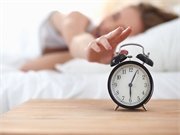
Working at home during a pandemic isn’t an option for about three-quarters of U.S. workers, putting them at increased risk of infection, a new study finds. Those 108 million workers tend to be among the lowest paid and are more likely to face pandemic-related job disruptions, including layoffs, furloughs or reduced hours. “This pandemic has… read on >






























